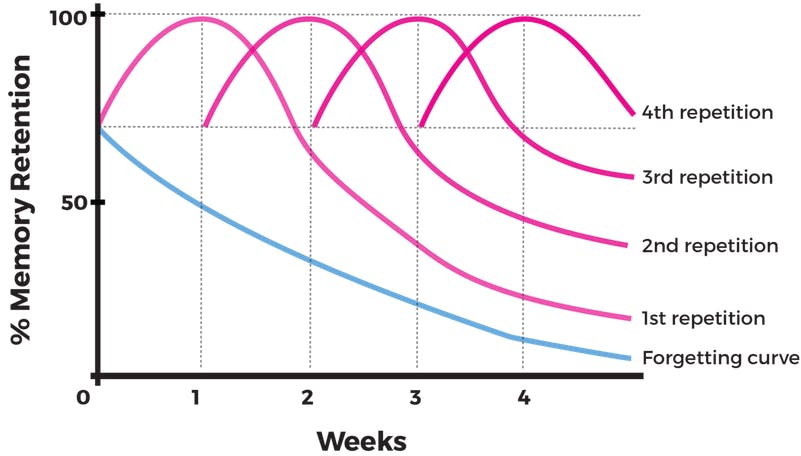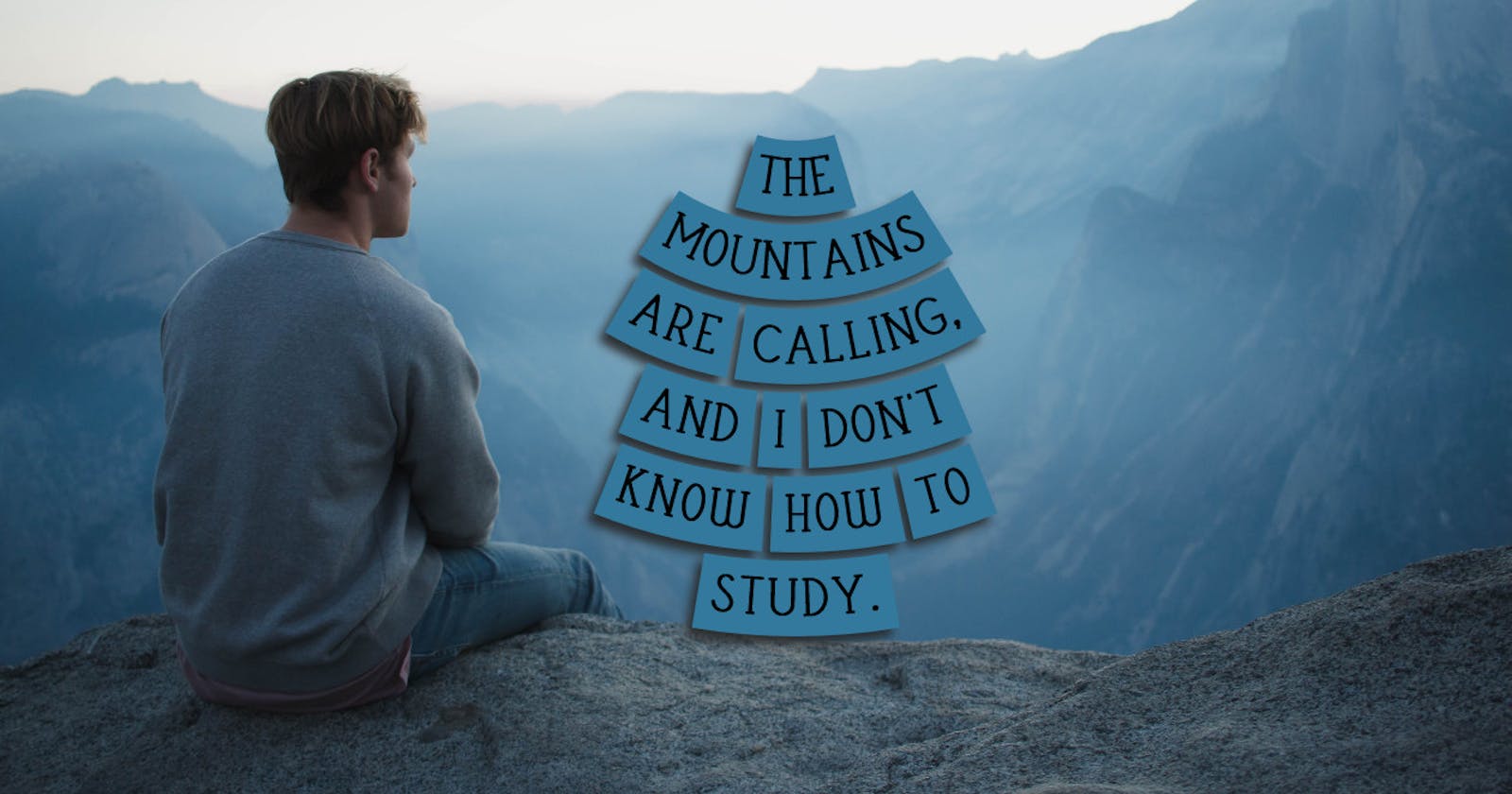Have you ever felt less productive than others around you?
That's not an uncommon feeling. I kind of just skated by in high school, putting in just enough effort to pass. When I got to college, I was so unequipped to handle any kind of focused learning that I failed my first semester. At the time, I sincerely believed I was just a loser who wasn't fit for higher education. I wasn't one of the diligent people that could succeed, or even deserved to. In retrospect, I had a really simple problem. No one ever taught me how to learn.
What changed?
I came across three game-changing concepts. The Curve of Forgetting, active recall, and spaced repetition. These concepts were taught to me courtesy of Leon Noel of 100Devs.
Let's get into what these things are, and how you can benefit. Take a look at the graph below. This is something known as The Curve of Forgetting.

The Curve of Forgetting:
Finding a baseline:
The blue line above is where most of us find ourselves with typical study methods. In short, if you were to study something once, within a week it's a complete coin-flip whether you'll remember it or not. Those odds get increasingly bleaker with every day that goes by. So how do we prevent this? A good place to start is a study method known as active recall
Active recall:
A step in the right direction.
If you've ever used a flashcard, this concept should be familiar to you. The basic premise is that by associating an answer with a question, over time connections form in the brain between the two. The more you practice associating an answer with a question, the easier it is to remember. Makes sense right? If we reference the graph of forgetting again, we'll find that each purple line represents one session of active recall. Without recall, we are almost certain to forget everything within 5 weeks. With a single session a week, however, it's near-certain that we've retained that information. That's a huge upgrade from cramming for hours the night before a test isn't it?
Spaced-repetition:
Bringing it all together.
So active recall once a week? Is that all spaced-repetition is? Not quite.
While this would be a massive improvement for our study habits, there's another trick to optimize it. Let's take that flashcard concept we talked about and expand it a bit. At some point in time, certain flashcards are more important than others. The questions that you've studied longer are far more ingrained than new cards. This more recent information requires a lot more upfront effort to learn than it takes to review the cards you've been studying for weeks.
The issue is taking the time to sort all these index cards! Keeping an ever-evolving rotation of flashcards sorted would be so taxing. Luckily, we have a tool. A way to really take these concepts, apply them and level up our study habits.
In comes ANKI:🦸
Anki, the tool of your future. Index cards with an algorithm. An app that coalesces everything we've learned up until this point.
Here's a gif showcasing how to get started.
Let's get the elephant out of the room, it's not the prettiest. But it is remarkably simple to use. Here is a written outline of the steps you need to take to get started.
Create a Deck:
Click on Create Deck
Name our deck and click on the OK button in the popup menu.
- We can now see our new deck listed in the Decks menu.
Now we click on Add in the topbar
This opens up a new window.
- We select the deck we want to add our cards to
Write your question in the top field.
Write your answer in the bottom field.
Click the add button at the bottom of the new window.
Congrats, you've added your first Anki card! Now how do we study that card?
Studying the deck
Click on a deck in the Decks tab.
Click the Study Now button that pops up.
Read the card and try to remember the answer
Flip the card over
Select how hard this card was, and how far into the future you want to see this card again.
- This is where Anki shines! The spaced repetition is built into this feature. Make sure to handle this part with honesty. If you mislabel how difficult a card is, you're leaving efficiency on the table.
This is just the basics, there's a surprising amount of depth to this tool. From different types of cards to restyling your decks, even seeing the data visualization of all your work. A more in-depth video on optimal use and customization is done by Anna Rebecca, click here to check it out.
Now for the big question in the room:
How does this apply to programming? 🤔
Whether you're a new developer or a seasoned gray beard, tech is a field that is in constant flux. New technologies release faster than anybody can keep up with. Your next job, hell maybe your first job, might not be in a tech stack you're familiar with. The task at hand will be onboarding yourself as fast as possible. Using Anki, we find ourselves in the position of optimizing our time dedicated to this. In a field where you're going to have to learn so much, ANKI lets you make time for life; that's just the rub of it.


